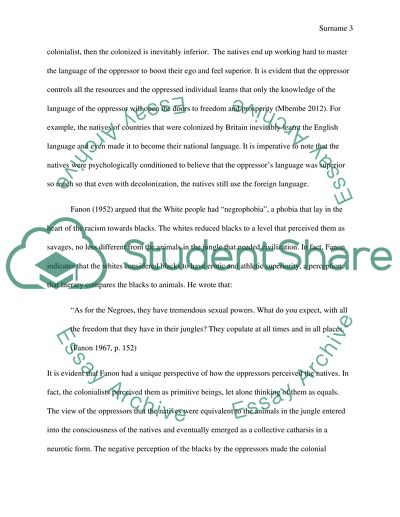Cite this document
(“Assess the originality of Frantz Fanon's diagnosis of colonial Essay”, n.d.)
Assess the originality of Frantz Fanon's diagnosis of colonial Essay. Retrieved from https://studentshare.org/sociology/1473360-assess-the-originality-of-frantz-fanon-s-diagnosis
Assess the originality of Frantz Fanon's diagnosis of colonial Essay. Retrieved from https://studentshare.org/sociology/1473360-assess-the-originality-of-frantz-fanon-s-diagnosis
(Assess the Originality of Frantz Fanon'S Diagnosis of Colonial Essay)
Assess the Originality of Frantz Fanon'S Diagnosis of Colonial Essay. https://studentshare.org/sociology/1473360-assess-the-originality-of-frantz-fanon-s-diagnosis.
Assess the Originality of Frantz Fanon'S Diagnosis of Colonial Essay. https://studentshare.org/sociology/1473360-assess-the-originality-of-frantz-fanon-s-diagnosis.
“Assess the Originality of Frantz Fanon'S Diagnosis of Colonial Essay”, n.d. https://studentshare.org/sociology/1473360-assess-the-originality-of-frantz-fanon-s-diagnosis.


